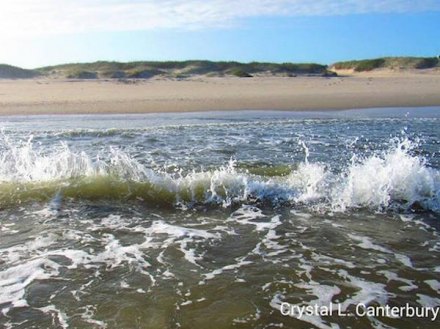Offshore Drilling for Dummies

I remember watching in horror as I imagined how many sea creatures and birds were going to be killed. The images of those poor animals were plastered all over the nightly news and on the front page of newspapers...for a while at least. Five years on, what has changed?
When the Deepwater Horizon explosion occurred in 2010, killing 10 people, proposed legislation that would allow drilling on the East Coast was withdrawn and a climate bill died in the Senate. The tragedy placed a chokehold on President Obama and plans for his environmental legacy. Fast forward five years and the plans are back in motion. After some research I learned the following:
* It's all about the money, seriously. No one knows how much oil and natural gas lie beneath our beloved ocean. It could be a huge amount but more likely, based on old surveys, it may not be enough that companies will be willing to invest the time and money to extract it. Estimates say that with production beginning in 2017 (doesn't seem likely at this point) US oil production by 2030 would be 7% higher than it would be otherwise. Seven percent. The effect on fuel prices would be insignificant. Governor McCrory wants the money from the oil companies for schools, roads, and other projects that have suffered from the recession.
* Our president, governor, and the huge energy companies want to "explore" what lies beneath the ocean floor. Drilling off the east coast took place from 1947 until the early 1980's. Fifty-one exploratory wells were positioned on the outer continental shelf of the Atlantic coast but none of them were completed as producing wells. There have been advances in the technology used to find oil and natural gas reserves so the companies want another go at it. Our government, both state and federal, wants to give them the chance. Our leaders want to sell leases to these companies in the hopes of striking it big. Does anyone else picture the Beverly Hillbillies?
* President Obama seems to be giving Republicans a peace offering by handing over our ocean to the oil companies. Some say that the President wants his climate change plans to go forward so he is willing to allow drilling in the Atlantic. Get this though: Alaska has been deemed "too special to develop." What makes one area more environmentally sensitive than another? Maybe Alaska's environmental groups have better lobbyists...or better leaders, than North Carolina.
*The Interior Department has said it would forbid drilling within 50 miles of the shore to protect fishing, tourism and coastal activities. Governor McCrory does not feel the need for a 50-mile buffer zone. “That 50-mile buffer right now unnecessarily puts much of North Carolina’s most accessible and undiscovered resources, frankly, under lock and key,” McCrory said. Virginia representatives are not happy with Governor McCrory's objection to the 50-mile buffer. “We know that oil spills don’t respect offshore state boundaries. We’ve got the Gulf Stream, so we know Virginia would bear the risk for North Carolina,” said Rep. Don Beyer, a Virginia Democrat.
* In general, people favor drilling offshore. When the Deepwater Horizon explosion and spill occurred, only 44% approved and 52% were against drilling. Since then, the support has increased to a whopping 69%. The recent recession has likely been the cause of this shift in numbers.
The truth is, as it usually is, that those most affected by the drilling and any potential calamities that may bring, are the people who live, work and vacation on the coast. There are oyster farmers in Louisiana who have seen their harvests cut in half since the oil spill in 2010. There have been countless sea turtles, dolphins, and shore bird deaths. Once the news coverage stops and the images fade from the public's memory, only those who encounter these creatures daily and those working to stop the drilling will remember.
I wonder, aren't some things in life worth more than any amount of money?
Ocracoke is hosting a "Hands Across the Sand" event on Saturday, May 16th at Noon at the Lifeguard Beach. Come out a few minutes earlier if you wish to join this message of solidarity.One of Ocracoke's many outspoken opponents to offshore drilling is Gary Mitchell, who sent us the following:
"I think it is incredibly irresponsible for our state and federal governments to be pushing for future oil and gas development off our coast, or anywhere for that matter. Why would a society of knowledgeable people do this when all the evidence is so clear that the risks are great and numerous? It is a fact that the poles are melting and sea levels are rising, and it is a fact that CO2 emissions from burning fossil fuels is a significant cause. Why would we support something that will contribute to sea level rise? It is a fact that oil spills happen on a regular basis around the world and sometimes have devastating impacts on coastal communities; why would we think this could never happen to us?
Our government needs to be encouraging investment in long term sustainable solutions to our energy needs. Let’s encourage and reward our brightest minds to find these solutions; or would we rather have them be hired by oil companies? Our government needs to stop pandering to those only interested in short-term economic gain and start making the tough decisions that are in the best long-term interests of its people."



